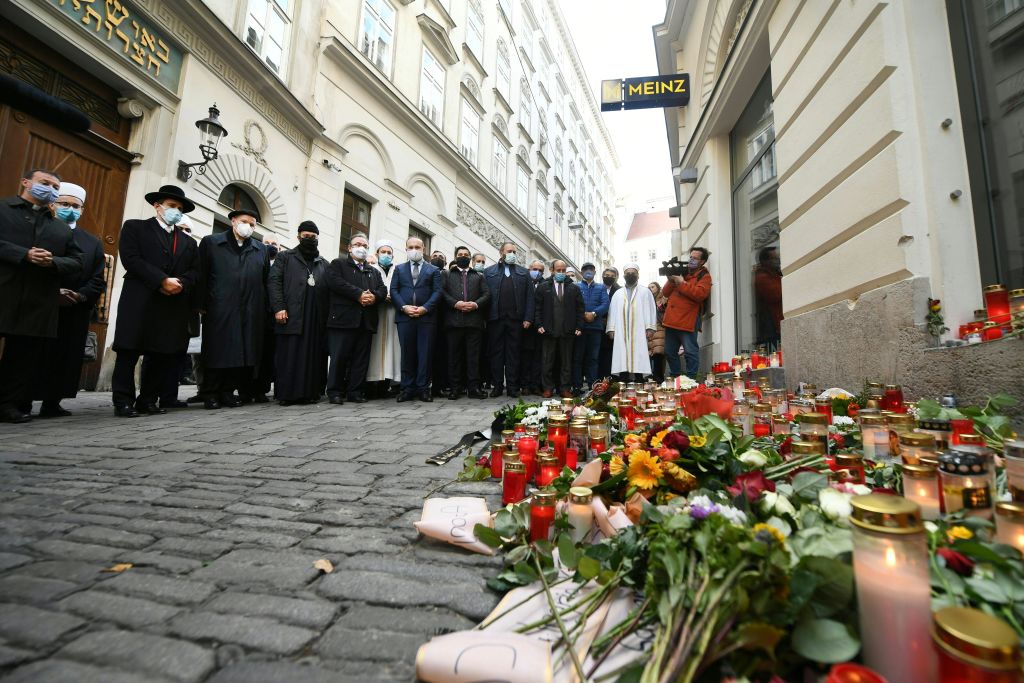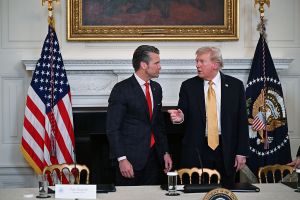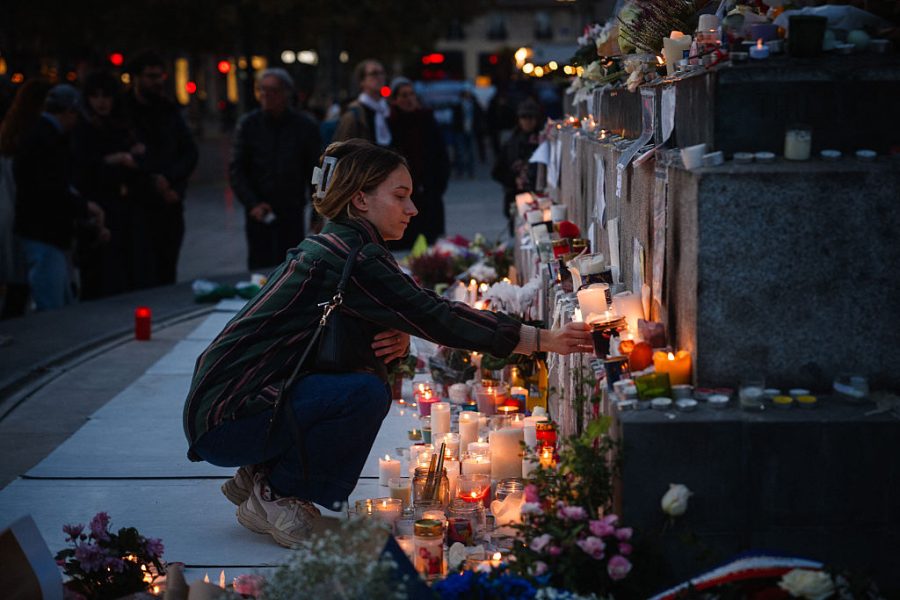Britain’s terror threat level has been upgraded to ‘severe’ this week, following jihadist attacks in both France and Austria. Raising a terror alert is not enough though to stop more attacks. The UK government’s security and bureaucratic response to terror is always playing catch-up and constantly on the defensive. And unless we take the time to understand the enemy, we cannot force it into retreat and defeat.
We must first of all be honest. Our country and compatriots depend on us getting this right. The threat we currently face is not about racism — which is why Christian Nigerians or Hindu Indians do not become terrorists in the West. It is not about unemployment, either — which is why white, working-class men, a demographic with high levels of unemployment, do not become suicide bombers. Instead, the threat from the menace of Islamist terror stems from a narrative — a dangerous cocktail of religion and politics — of the past, anger in the present, and a vision for the future. It is that narrative that we must confront head on and destroy.
The political Islamist foe fights us now on three fronts. First, the toughest fight is with regards to freedom of expression. The killing of Samuel Paty, the Charlie Hebdo magazine attack, previous outrages against Denmark, Norway, and the attempts to kill Salman Rushdie by a fatwa from Iran, all point to a rising three-decade long trend of intolerance.
Since the Enlightenment, the West has progressed past the notion of banning cartoons or offending religious figures. The blood of millions spilt during the Reformation, wars of religion and two world wars have left us with this freedom. That same, inseparable liberty to offend is also what allows European Muslims to thrive as citizens and believers. This basic but powerful idea is yet to be understood fully.
Muslim civilizations, too, were once confident in this freedom. The Prophet’s wife, Ayesha, would say to him ‘How convenient that your God reveals verses that satisfy your desires.’ Nasredin Hodja, a Muslim satirist entertained generations of people with his books of jokes and caricatures. For centuries, the Sufis mocked orthodox believers and their rituals. Blessed was blasphemy.
We Muslims again need to learn to joke, to laugh more and accept that in the West, since the times of the ancient Greeks, mockery and theatre have been the norm. Islamists cannot and must not destroy this inheritance.
Secondly, the hatred of Jewishness did not end with the Nazis. That same, old mental disease possesses Islamists — and their attack outside a synagogue in Vienna this week (the first of six locations to be targeted) appears to have been the expression of that sickness of mind. In Britain, France and Germany, repeatedly, Islamists have targeted Jewish people and symbols. Islamists reject Jewish history, the modern state of Israel and whether it’s Hamas or Isis, are sworn enemies of the Jewish state.
Our Arab allies, the United Arab Emirates, Bahrain, Egypt, Jordan and Sudan deserve our full support for refuting this anti-Semitic narrative by practically extending the hand of friendship to Israel this year. As Arab-Israeli peace and normalization takes hold in the Muslim world, Europe’s cities are fast becoming the last refuge of Islamist radicals. This blunder will have serious consequences for our own peace and security.
Thirdly, Vienna as a choice for a terror operation by Islamic State was not an accident. European apologists who claim that Western foreign policy drives Islamist violence have been proven wrong again. They cannot blame Vienna for recent wars and colonialism in the Muslim world. In fact, the Ottoman caliphate and Austro-Hungarians even fought together on the same side in the first world war. But after they lost, Turkey subsequently became a secular republic and over the last century, most Muslim governments across the world have rejected the concept of a supra-national caliphate and engaged in building secular nation states. And that is exactly what the Islamists oppose.
By attacking Vienna now, not only are they settling old scores, but reminding their Jihadist foot soldiers that previous wars are still raging. For it was in Vienna in 1683, that the Ottoman caliphate was beaten back by Europe. For two centuries, the Ottomans attempted to conquer and subdue Vienna as a base to conquer the rest of Europe. But in 1683, the loss and humiliation of the Ottomans was total. The caliphate never recovered and not a single substantial military victory was made afterwards. That body blow from the infidel West still haunts those who wish to recreate their Islamist empire.
[special_offer]
They refuse to accept that the caliphate is a historical relic. The European victory in 1683 was not a Christian only effort: King Sobieski of Poland, who came to the aid of the Hapsburgs, was assisted by his loyal Tartar Muslims who fought valiantly in battle against the Ottomans. The Muslims loyal to Poland did not believe in the necessity of a caliphate, nor Islamic imperial conquests. Therein lies the secret to our fight-back today.
By supporting Muslim nations and individuals who are modern, enlightened, secular and at peace with the world, we further isolate and defeat Islamists who crave a caliphate, hate Jews and wish to kill our freedoms. In this pursuit, Britain has been muted. Combating terrorism with police and security is too late: we must go further upstream.
In France, President Macron deserves more support. From the land of Descartes and Voltaire, Macron has mounted an uncompromising clarion call for liberty. Islamism is ‘not welcome on French soil’ he declared. Boris Johnson and Britain should rally around France in the spirit of Locke and Burke to conserve civilization. We too must have the courage to say ‘Not in our country!’ Islamists do not belong in the West. Anything less is capitulation, unbecoming of the nation of Churchill and freedom. For when we have the courage to say they don’t belong here, their behavior will change, peace-loving Muslims will hand them over to the authorities earlier, a younger generation will not follow them.
This article was originally published onThe Spectator’s UK website.

























